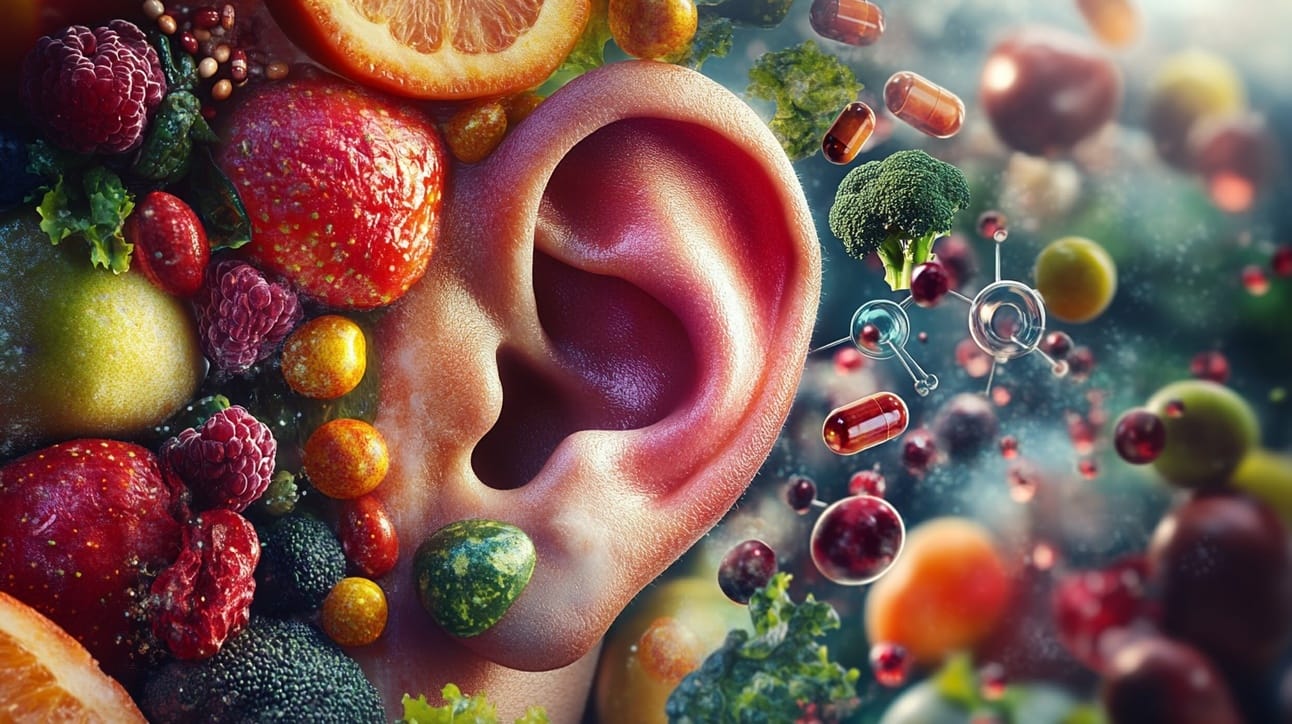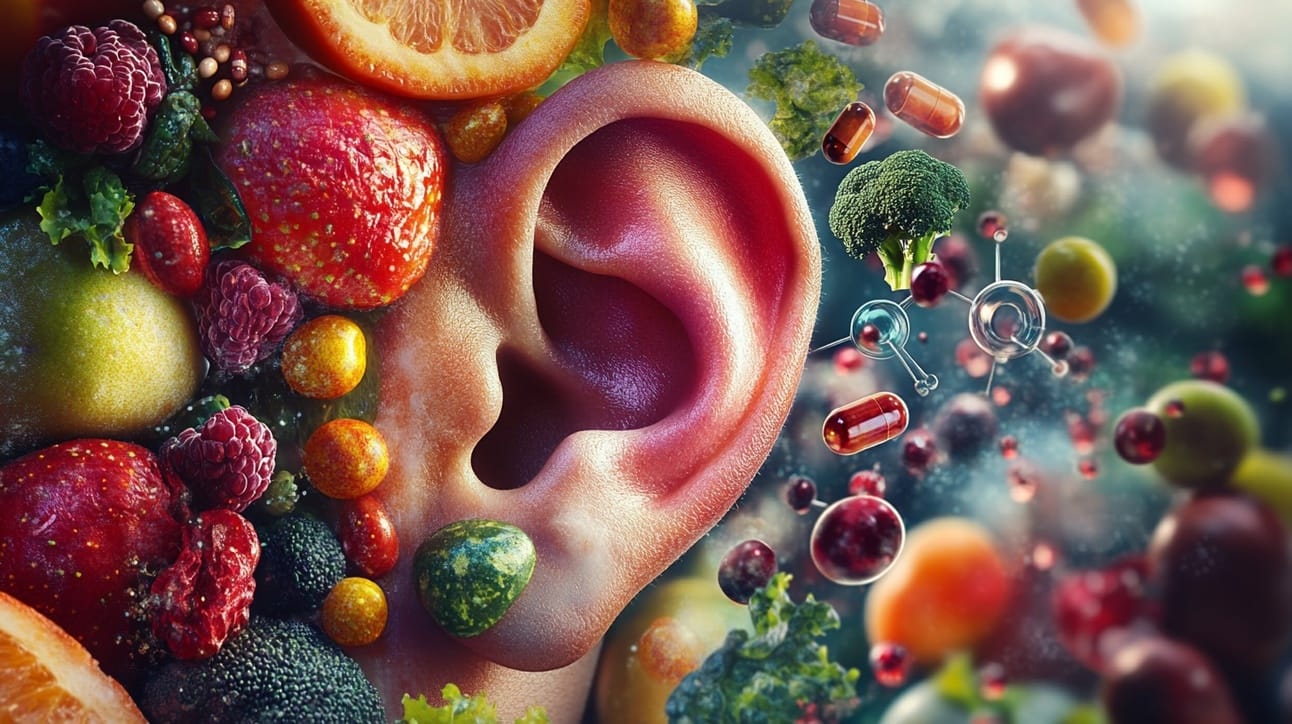- 40-something
- Posts
- Vitamin and mineral deficiencies that can lead to hearing loss
Vitamin and mineral deficiencies that can lead to hearing loss
How to protect your hearing with proper nutrition.

You read that right… Hearing loss is often linked to ageing, genetics, and exposure to loud noise, but did you know that nutritional deficiencies can also play a role? A family member confided that she noticed a recent decline in her hearing, which inspired my deep dive into the role of insufficient nutrients in contributing toward problems with one’s ears and hearing. Here’s what I discovered…
Your ears require a steady supply of vitamins and minerals to function properly. When your body lacks certain nutrients, it can affect the nerves, blood flow, and cellular structures responsible for hearing.

Key vitamins and minerals that impact your sense of hearing.
1. Vitamin B12 – Nerve protection and repair
Vitamin B12 plays a crucial role in maintaining the health of nerve cells, including the auditory nerve that transmits sound signals to the brain. A deficiency in B12 has been linked to tinnitus (ringing in the ears) and sensorineural hearing loss. This type of hearing loss occurs when the hair cells in the inner ear or the nerve pathways leading to the brain are damaged.
Symptoms of B12 deficiency:
Numbness or tingling in extremities
Fatigue and weakness
Memory problems
Balance issues
Good sources of vitamin B12:
Fish (salmon, tuna)
Meat (chicken, beef)
Eggs and dairy
Fortified cereals
2. Vitamin D – Bone health and inner ear function
Vitamin D is essential for calcium absorption and bone health. The tiny bones in the middle ear (the ossicles) rely on strong bone density to transmit sound vibrations effectively. A deficiency in vitamin D can contribute to otosclerosis, a condition where abnormal bone growth in the ear leads to hearing loss.
Symptoms of Vitamin D deficiency:
Bone pain and weakness
Frequent infections
Muscle cramps
Fatigue
Good sources of Vitamin D:
Sunlight exposure
Fatty fish (mackerel, sardines)
Egg yolks
Fortified dairy products
3. Magnesium – Protecting against noise-induced hearing loss
Magnesium plays a protective role against noise-induced hearing loss. It helps maintain proper blood flow to the inner ear and protects against oxidative stress, which can damage the delicate hair cells responsible for hearing. Studies suggest that magnesium deficiency may make the ears more susceptible to loud noise damage.
Symptoms of magnesium deficiency:
Muscle cramps and spasms
Anxiety and irritability
Fatigue and weakness
Irregular heartbeat
Good sources of magnesium:
Leafy greens (spinach, kale)
Nuts and seeds (almonds, sunflower seeds)
Whole grains
Dark chocolate
4. Zinc – Immune support and tinnitus management
Zinc is vital for the immune system and cellular repair. It also plays a role in managing tinnitus and sudden sensorineural hearing loss (SSNHL). A lack of zinc can lead to increased susceptibility to ear infections and delayed healing of the auditory system.
Symptoms of zinc deficiency:
Frequent colds and infections
Slow wound healing
Loss of taste and smell
Tinnitus (ringing in the ears)
Good sources of zinc:
Shellfish (oysters, shrimp)
Red meat and poultry
Pumpkin seeds
Legumes (chickpeas, lentils)
Iron is necessary for proper oxygen transport in the blood. Iron-deficiency anaemia has been associated with an increased risk of hearing loss, likely due to reduced oxygen supply to the cochlea, the part of the inner ear responsible for sound detection.
Symptoms of iron deficiency:
Fatigue and weakness
Pale skin
Shortness of breath
Dizziness
Good sources of iron:
Lean meats and liver
Spinach and kale
Beans and lentils
Ensuring a balanced diet rich in these essential vitamins and minerals can help maintain your hearing health and prevent potential damage. Definitely supplement with a good multivitamin tablet daily, too, because modern food processing and commercial farming practices result in the food on our plate not being as nutrient dense as it should be. If you suspect a deficiency, consult a healthcare professional for testing and dietary recommendations.
Hear, hear! Ears ain’t ornaments xx
Umayya